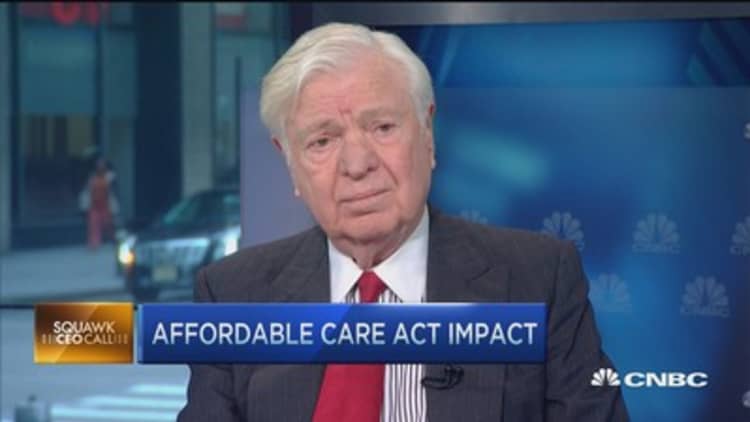
Obamacare has failed to deter emergency room visits because many patients have no choice when they can't get an appointment with a primary-care physician, the founder of hospital operator Universal Health Services said Friday.
While the millions more who have health insurance certainly play a part in the doctor shortage, Alan Miller told CNBC's "Squawk Box" that poor reimbursement rates for primary-care physicians is also a major factor.
"They get a better reimbursement when they take care of people that have insurance from their employer," the Universal Health chairman and CEO said. "The doctors are reluctant to schedule appointments" with patients who have government plans.
"So people are still going to the emergency room, which is opposite of what Obamacare was supposed to do," he added.
Miller said the solution to reducing ER visits would be simple, but not without cost.
"Raise the reimbursement to the primary-care people," he said, then doctors "would be more likely to make appointments with people that have lower-priced insurance or being subsidized by the federal government."
Hospital operators such as Universal Health have profited from Obamacare, which has made medical insurance widely available.
"It has helped us with regard to bad debt," because now many more people who arrive at the ER for treatment can pay, said Miller, explaining that prior to the Affordable Care Act, hospitals incurred the costs of treating patients who had no ability to pay.
"We had bad debt. All the hospitals had bad debt that was approaching between 15 percent and 25 percent in some cases," he said. "Ours were a little under 20 percent. And that has gone down substantially because people have coverage. They can pay."
Miller is one of the longest-serving CEOs in America—37 years at the helm.


